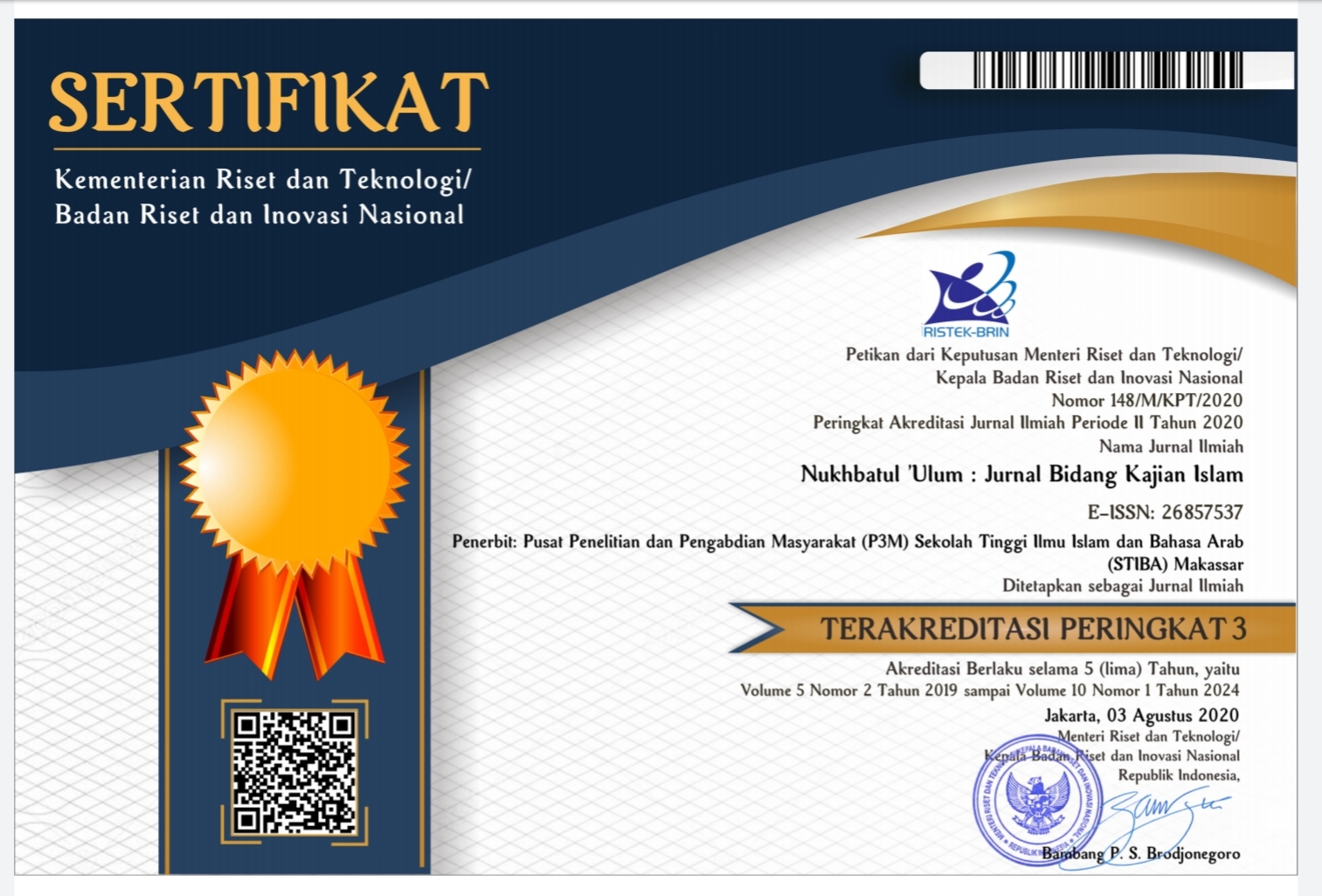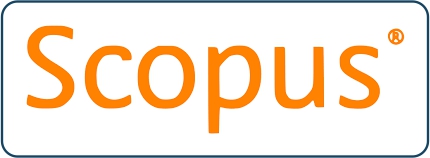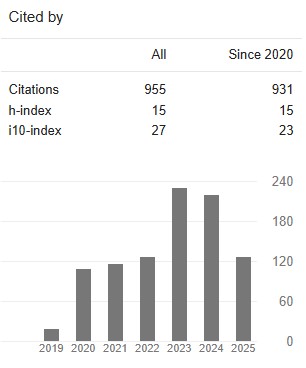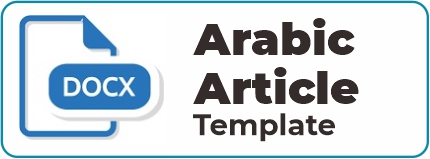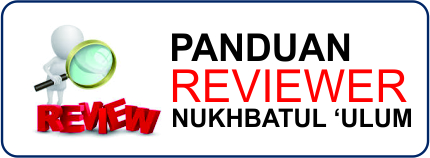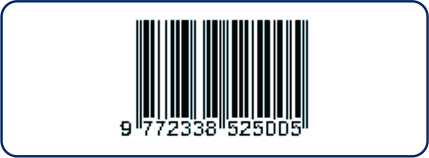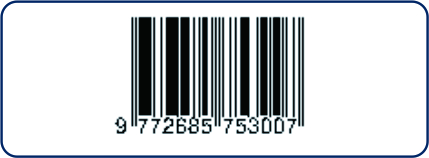Kontrak Kerja dan Kesejahteraan ABK Nelayan Perspektif Etika Bisnis Islam di Sarangmeduro, Jawa Tengah
Work Contract and Welfare of Fishing Boat Crew From Islamic Business Ethics Perspective in Sarangmeduro, Central Java
DOI:
https://doi.org/10.36701/nukhbah.v6i2.240Keywords:
Work Contract, Welfare, Fishermen, Islamic Business EthicsAbstract
Analysis of work contracts on the welfare of crew in fishermen sector from the Perspective of Islamic business ethics in Sarangmeduro Village is a study that aimed to answer questions about how the fishermen sector work contracts are implemented and how the welfare of the crew members is applied in Sarangmeduro Village. The methodology used was descriptive qualitative method with the type of case study research on the object. The result of this research is that the work contract conducted by fishermen in Sarangmeduro Village is a work contract system that has been implemented from generation to generation and is more likely to approach the muzaroah contract in profit sharing of maro or paroan. Based on the field of employment, the fishermen in Sarangmeduro Village live in prosperity. By the opening jobs provided by ship employers, they are facilitated in finding work. The residence that is inhabited every year has changed, which was originally made of woven bamboo, now most of them are built of bricks. The existence of a work contract implemented by fishermen can help to boost the economic condition of the fishermen in Sarangmeduro Village, which is always developing. The researcher recommend that fishermen make work inovation.
Downloads
References
Abdi, M. K., & Febriyanti, N. (2020). Penyusunan Strategi Pemasaran Islam dalam Berwirausaha di Sektor Ekonomi Kreatif Pada Masa Pandemi Covid-19. El Qist - Journal of Islamic Economics and Business, 10(2), 160–179.
Battour, M., Rahman, M. K., & Rana, M. S. (2019). The impact of PHTPS on trip quality, trip value, satisfaction and word of mouth: Non-Muslim tourists’ perspective. Journal of Islamic Marketing. https://doi.org/10.1108/JIMA-03-2019-0058
Fadilah, A., & Makhrus, M. (2019). Pengelolaan Dana Tabarru’ pada Asuransi Syariah dan Relasinya dengan Fatwa Dewan Syariah Nasional. Jurnal Hukum Ekonomi Syariah, 2(1), 87. https://doi.org/10.30595/jhes.v2i1.4416
Farwah, A. (2013). Faktor Sosial Terhadap Kesejahteraan Islami Keluarga Muslim di Kota Surabaya. Jurnal Ekonomi Dan Bisnis Airlangga (JEBA), 23(2), 154–163.
Hegnes, A. W. (2019). The map and the terroir: Adapting geographical boundaries for PDO and PGI in Norway. British Food Journal, 121(12), 3024–3042.
Heryawan, A., Fauzi, A., & Hidayat, A. (2014). Ekonomi Pertanian , Sumberdaya Daya dan Lingkungan ( Journal of Agriculture , Resource , and Environmental Economics ) ANALISIS EKONOMI DAN KEBIJAKAN SUMBER DAYA ALAM. Analisis Ekonomi Dan Kebijakan Sumber Daya Alam Provinsi Jawa Barat, 1(3), 1–11.
Iskandar, A., & Aqbar, K. (2019). Kedudukan Ilmu Ekonomi Islam diantara Ilmu Ekonomi dan Fikih Muamalah: Analisis Problematika Epistimologis. Nukhbatul ’Ulum: Jurnal Bidang Kajian Islam, 5(2), 88–105. https://doi.org/doi.org/10.36701/nukhbah.v5i2.77
Khan, T. (2019). Venture waqf in a circular economy. ISRA International Journal of Islamic Finance, 11(2), 187–205. https://doi.org/10.1108/IJIF-12-2018-0138
Miftakhul Jannah, D., & Nugroho, L. (2019). Strategi Meningkatkan Eksistensi Asuransi Syariah di Indonesia. Jurnal Maneksi, 8(1), 169–176.
Raies, A. (2020). Islamic versus Conventional Fiscal policy: The effect of zakat on education and employment. Academic Journal of Interdisciplinary Studies, 9(1), 27–33. https://doi.org/10.36941/ajis-2020-0003
Rijal, A. (2018). Pengetahuan Konsumen terhadap IB Hasanah Card Bank BNI Syariah Cabang Surabaya. 1(1), 117–139.
Rohida, L. (2018). Pengaruh Era Revolusi Industri 4.0 terhadap Kompetensi Sumber Daya Manusia. Jurnal Manajemen Dan Bisnis Indonesia. https://doi.org/10.31843/jmbi.v6i1.187
Ryandono, M. N. H., & Ridlwan, A. A. (2020). Solution for Islamic Banks Exploitation: A Criticism of Fixed-Yields Based Financing in Indonesia. Al-Uqud: Journal of Islamic Economics, 4(1), 48–68. https://doi.org/10.26740/al-uqud.v4n1.p48-68
Salim, & Syahrum. (2012). Metode Penelitian Kualitatif (pp. 40–41). Citapustaka Medua.
Salisa, N. R., Aeni, I. N., & Chamid, A. A. (2019). Analisis Faktor-faktor Penerimaan Penggunaan Sistem Keuangan Desa: Pendekatan TAM dan TPB. Ekonomi Dan Bisnis, 6(1), 34. https://doi.org/10.35590/jeb.v6i1.829
Sari, F. K., Safitri, N., & Anggraini, W. (2019). Persepsi, Sikap dan Minat Pariwisata Halal di Daerah Istimewa Yogyakarta. Ihtifaz: Journal of Islamic Economics, Finance, and Banking, 2(2), 137. https://doi.org/10.12928/ijiefb.v2i2.857
Sudirman, S. (2012). Implementasi Nilai Total Quality Management Dalam Pengelolaan Wakaf Di Dompet Dhuafa Dan Pondok Pesantren Tebuireng. Journal de Jure, 4(2), 171–186. https://doi.org/10.18860/j-fsh.v4i2.2986
Syarifudin, Nurlailah, & Yudha, A. T. R. C. (2020). The Allocation of Tabarru’ Fund Underwriting Surplus of Iplan Sharia Product in PT. Asuransi Jiwa Generali Indonesia. Jurnal Ekonomi Syariah Teori Dan Terapan, 7(9), 1804–1817. https://doi.org/10.1017/CBO9781107415324.004
Yudha, A. T. R. C. (2020). Profesionalisme Dosen Luar Biasa (DLB) pada Era Milenial di UIN Sunan Ampel Surabaya: Sebuah Studi Analisis Konten. 2(Manajemen SDM), 77–86. http://jurnalfebi.uinsby.ac.id/index.php/MANOVA/article/view/247
Zaki, I., Widiastuti, T., Yudha, A. T. R. C., Wijayanti, I., & Mi’raj, D. A. (2020). Implementation of Islamic entrepreneurial culture in Islamic boarding schools. International Journal of Innovation, Creativity and Change, 11(11), 452–469.
Zustika, A. F., & Yudha, A. T. R. C. (2020). Peer to Peer Lending System in Hifdul Maal Perspective: Evidence From he Fintech Company of Investree. Jurnal Ekonomi Syariah Teori Dan Terapan, 7(8), 1585–1597. https://doi.org/10.20473/vol7iss20208pp1584-1597



